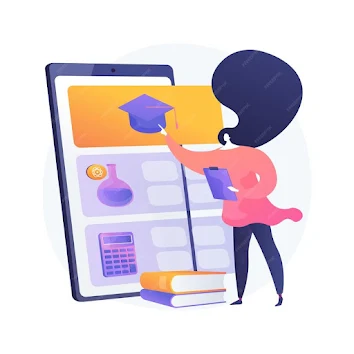In the ever-evolving landscape of education, Outcome-Based Learning (OBL) stands out as a transformative approach that places a strong emphasis on practical skills, critical thinking, and personalized learning experiences. While it's evident that OBL has the potential to revolutionize how we educate students, a critical question remains: What are the long-term effects of Outcome-Based Learning on career success? In this blog post, we will explore the impact of OBL on students' careers and how it shapes their journey to success.
The Foundation of Outcome-Based Learning
Outcome-Based Learning is founded on the principle that education should prioritize skill mastery, clear learning objectives, and competency-based assessments. It shifts the focus from traditional education's emphasis on rote memorization and standardized testing to a more dynamic and relevant model. Here's how OBL sets the stage for long-term career success:
Clear Learning Objectives: OBL sets specific learning objectives for each subject, clearly defining what students are expected to know and be able to do. This results in a more structured and purpose-driven educational experience.
Practical Application: OBL encourages students to apply their knowledge in real-world contexts. This practical approach equips them with skills that are directly transferable to their careers.
Personalization: OBL tailors the learning experience to individual students' unique needs and abilities. This customization allows students to explore their strengths and interests, aligning their education with their career aspirations.
Critical Thinking: By emphasizing real-world problem-solving, OBL nurtures the development of critical thinking skills. This is invaluable in any career, as it enables individuals to analyze complex issues and devise innovative solutions.
Collaboration and Communication: OBL promotes collaboration and effective communication, skills essential not only in academic settings but also in the workplace, where teamwork and interaction with colleagues and clients are often required.
The Long-Term Impact on Career Success
Now, let's delve into the long-term effects of OBL on career success:
Alignment with Industry Needs: OBL ensures that education is in sync with the demands of the job market. By focusing on specific competencies and practical skills, OBL graduates are better prepared to meet the needs of employers. This alignment bridges the gap between education and industry requirements, boosting graduates' employability.
A Strong Foundation for Lifelong Learning: The critical thinking skills developed through OBL are transferable to new challenges and industries. Graduates are better equipped to adapt to changing job market demands, making lifelong learning a natural part of their career journey.
Increased Confidence: OBL students have a deeper understanding of their fields of study, which can boost their confidence in the workplace. Confident employees are more likely to take on leadership roles, make informed decisions, and innovate.
Problem-Solving Skills: The ability to tackle complex problems, a core aspect of OBL, is highly valuable in many careers. OBL equips students with the mindset and tools to address challenges effectively.
Job Market Advantage: Graduates of OBL programs may have a competitive edge in the job market due to their practical skills and critical thinking abilities. This advantage can lead to quicker career advancement and higher earning potential.
Adaptability: OBL nurtures adaptability, a crucial skill in today's fast-paced world. Graduates are more likely to embrace change, learn new technologies, and thrive in dynamic work environments.
In conclusion, Outcome-Based Learning has the potential to leave a lasting positive impact on students' long-term career success. By focusing on practical skills, critical thinking, and personalized learning experiences, OBL equips graduates with the tools they need to excel in their chosen professions. As the education landscape continues to evolve, OBL represents a significant step toward preparing students for success in the 21st century job market. It's not just about getting good grades; it's about building a solid foundation for a successful and fulfilling career.



Comments
Post a Comment